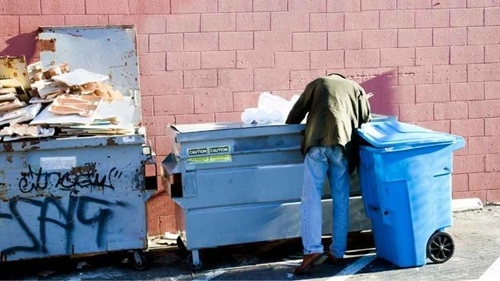Yes, it is illegal to throw something at a parked car. Such actions can result in criminal charges, civil liabilities, and fines depending on the damage caused and the intent behind the act.
Understanding the Legal Implications
Throwing an object at a parked car is considered an act of vandalism or malicious mischief under U.S. law. The specific consequences depend on several factors, including the nature of the act, the extent of the damage, and the laws in the jurisdiction where the incident occurred.
Key Legal Aspects
- Vandalism Laws:
- Most states classify throwing objects at cars as vandalism if the act damages the vehicle.
- Damage to a vehicle could include scratches, dents, broken windows, or other forms of harm.
- Vandalism is typically treated as a misdemeanor but can be elevated to a felony if the damage exceeds a certain monetary threshold (e.g., $1,000 in states like California).
- Reckless Endangerment:
- Even if the car is unoccupied, throwing objects can sometimes be considered reckless endangerment, especially if the act occurs in a public space where others might be harmed.
- Intent Matters:
- Intent plays a significant role in determining penalties. Deliberate acts meant to harm or damage are punished more severely than accidental actions.
- Juveniles often face lighter penalties but may still be required to pay restitution.
- Civil Liabilities:
- Beyond criminal charges, the perpetrator can face civil lawsuits for damages. The vehicle owner can sue for the cost of repairs and, in some cases, punitive damages.
Penalties for Throwing Objects at a Parked Car
Penalties vary by state but typically include:
- Fines: Ranging from $100 to several thousand dollars based on the extent of damage.
- Restitution: Offenders may be required to pay the full cost of repairs or replacement.
- Community Service: Often assigned for minor offenses or first-time offenders.
- Imprisonment: Jail sentences can range from a few days for misdemeanors to several years for felony offenses.
For example:
- California: Penal Code Section 594 considers vandalism a misdemeanor or felony depending on the damage amount. Fines can reach up to $10,000.
- Texas: Damage less than $2,500 is a misdemeanor; above this threshold, it becomes a felony with stricter penalties.
Reporting and Law Enforcement
Victims of such incidents should:
- File a police report immediately, providing details like time, location, and potential suspects.
- Document the damage with photos and gather any eyewitness accounts.
- Contact their insurance company to discuss coverage options.
Law enforcement typically investigates based on evidence, including surveillance footage, eyewitness testimony, and physical evidence like thrown objects.
Preventative Measures
To avoid becoming a victim of vandalism:
- Park in well-lit, secure areas.
- Install a dashcam with parking mode to capture potential incidents.
- Use anti-vandalism car covers or alarms for added security.
Related Most Common FAQs
Q1. Is it illegal to throw something at a car if it doesn’t cause damage?
Ans: Yes, it can still be illegal. Even if no visible damage occurs, the act may be considered harassment, disorderly conduct, or attempted vandalism.
Q2. What should I do if someone throws something at my parked car?
Ans: Report the incident to the police, document the damage, and contact your insurance company. Providing evidence like photos or video footage can strengthen your case.
Q3. Can a minor be charged for throwing something at a car?
Ans: Yes, minors can face charges, although the penalties may differ. Juvenile courts often focus on rehabilitation, but minors (or their parents) may still be required to pay for damages.
Q4. Can insurance cover damages caused by vandalism?
Ans: Yes, comprehensive car insurance often covers vandalism. However, you may need to pay a deductible before insurance covers the repair costs.
Q5. Can I sue someone for throwing something at my car?
Ans: Yes, you can file a civil lawsuit to recover repair costs, lost wages (if the damage affected your ability to work), and, in some cases, punitive damages.

